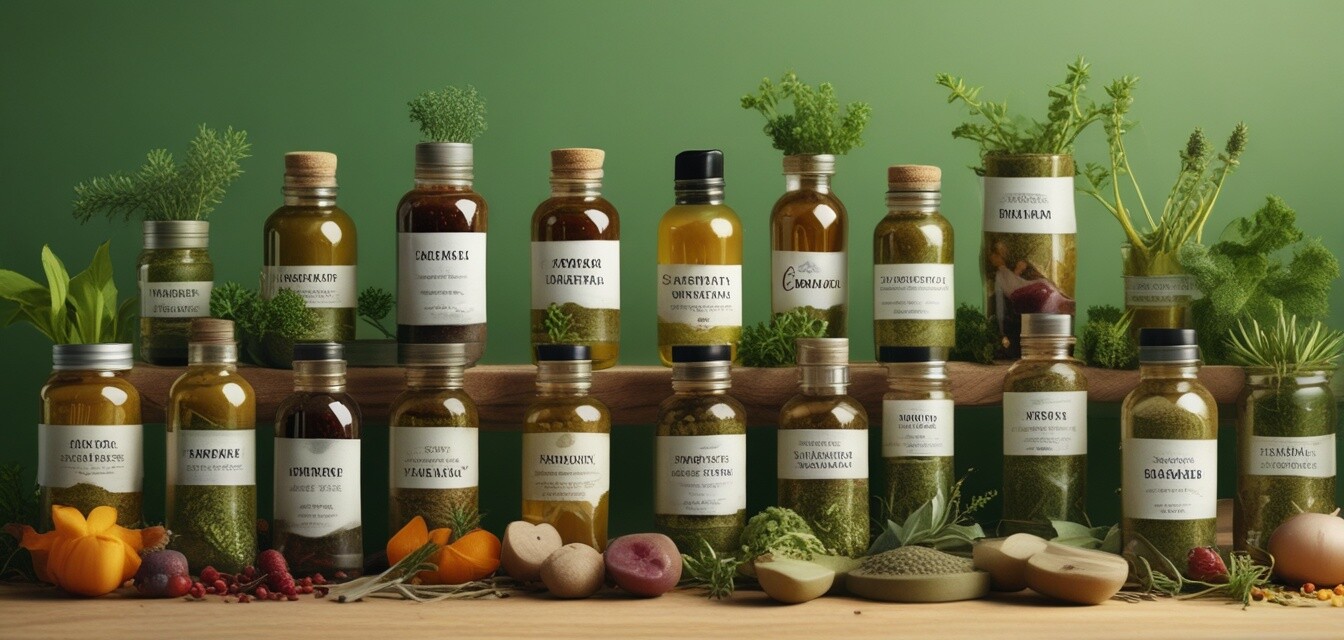
How to Choose Sustainable Herbal Ingredients for Your Health
Key Takeaways
- Opt for herbs with certified organic or sustainable sources.
- Research the brand's ethical sourcing practices.
- Consider the impact of herbal supplements on the environment.
- Choose brands that prioritize eco-friendly packaging.
- Look for transparency in ingredient sourcing and manufacturing.
Choosing the right herbal ingredients is crucial for your health and well-being. Not only do you want effective supplements, but you also want to ensure that they are sourced responsibly and sustainably. In this guide, we'll explore practical tips for selecting herbal ingredients that benefit both your health and the planet.
The Importance of Sustainable Ingredients
Sustainable herbal supplements have gained popularity due to increased awareness about health and environmental impacts associated with traditional herbal sourcing practices. By choosing sustainable products, you contribute to the preservation of natural resources and biodiversity.
Why Sustainability Matters
- Preserves plant species and habitats.
- Reduces carbon footprint and pollution.
- Supports local economies and farmers.
- Promotes ethical practices in the supplement industry.
How to Identify Sustainable Herbal Ingredients
Identifying sustainable herbal ingredients requires some research. Here are the key factors to consider:
1. Certifications
Look for certifications that indicate responsible sourcing. Some common certifications include:
| Certification | Description |
|---|---|
| USDA Organic | Ensures that products are made without toxic pesticides and fertilizers. |
| Fair Trade | Ensures fair wages and safe working conditions for farmers. |
| Non-GMO Project Verified | Indicates that the product is free from genetically modified organisms. |
2. Sourcing Transparency
Research the brands you are considering. A reputable brand should provide information about where their ingredients are sourced and how they are harvested. This consideration is vital for ethical practices.
3. Eco-Friendly Packaging
Look for brands that utilize sustainable packaging options such as:
- Recyclable materials
- Biodegradable packaging
- Minimal packaging to reduce waste
Product Highlight: Natural Health Weight Loss with Puravive
One excellent resource for those interested in incorporating sustainable herbal practices into their wellness routine is the Natural Health Weight Loss with Puravive book. This product provides insights into creating healthy habits without requiring extreme diets or extensive exercise regimens.
Natural Health Weight Loss with Puravive
Explore this comprehensive guide to achieving a healthier lifestyle through sustainable practices without the need for special diets or intense exercise.
Learn MoreHerbal Ingredients to Look For
When selecting herbal supplements, consider these popular sustainable options:
| Herb | Benefits | Sustainable Source |
|---|---|---|
| Turmeric | Anti-inflammatory properties | Ethically sourced from India |
| Ginger | Supports digestion | Organic farms in Peru |
| Moringa | Nutrient-rich and supports energy levels | Harvested from sustainable farms in Africa |
Challenges in Selecting Sustainable Herbs
Even with the growing demand for sustainable products, challenges do exist. Consider these common issues:
- Misleading labels and lack of transparency.
- Higher costs associated with sustainable products.
- Limited availability in local markets.
Conclusion
Choosing sustainable herbal ingredients for your health is a way to take charge of your wellness while caring for the planet. By understanding certifications, ensuring sourcing transparency, and opting for eco-friendly products, you can make informed choices that benefit both you and the Earth.
Tips for Beginners
- Start with one or two sustainable herbal supplements at a time.
- Read labels carefully and research brands before buying.
- Ask local health food stores for recommendations on sustainable products.
- Join online communities focused on sustainable living for advice and support.
- Share your knowledge with family and friends to promote a more sustainable lifestyle.
For more information on sustainability in supplements, check our detailed guides such as Introduction to sustainable supplements and Consumer guide to ethical brands.
